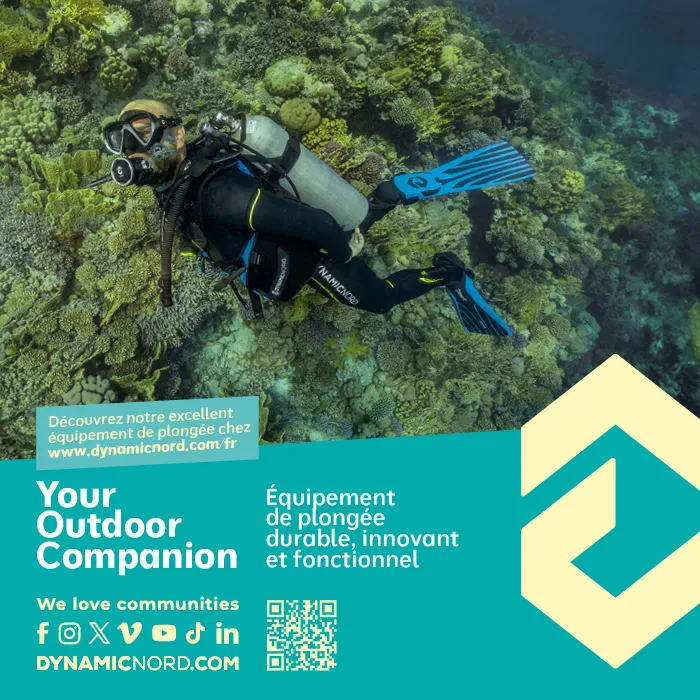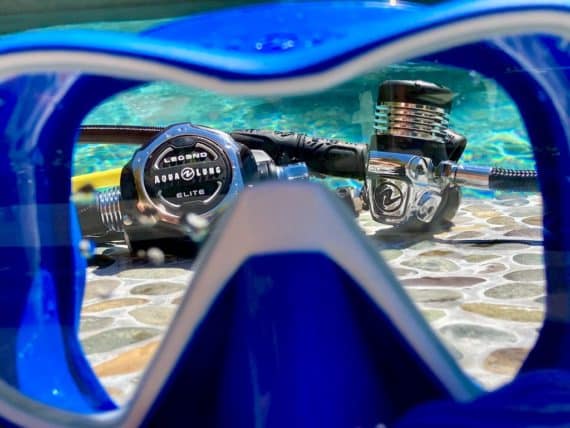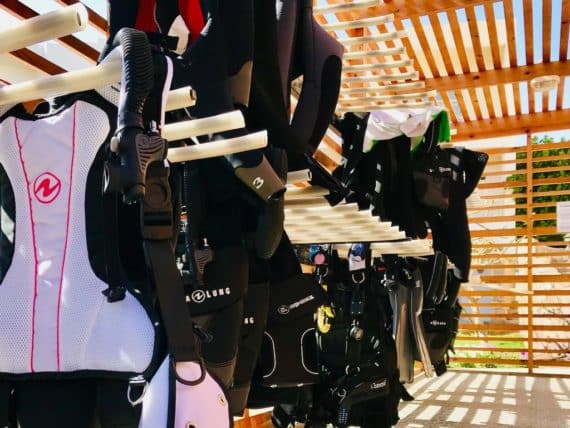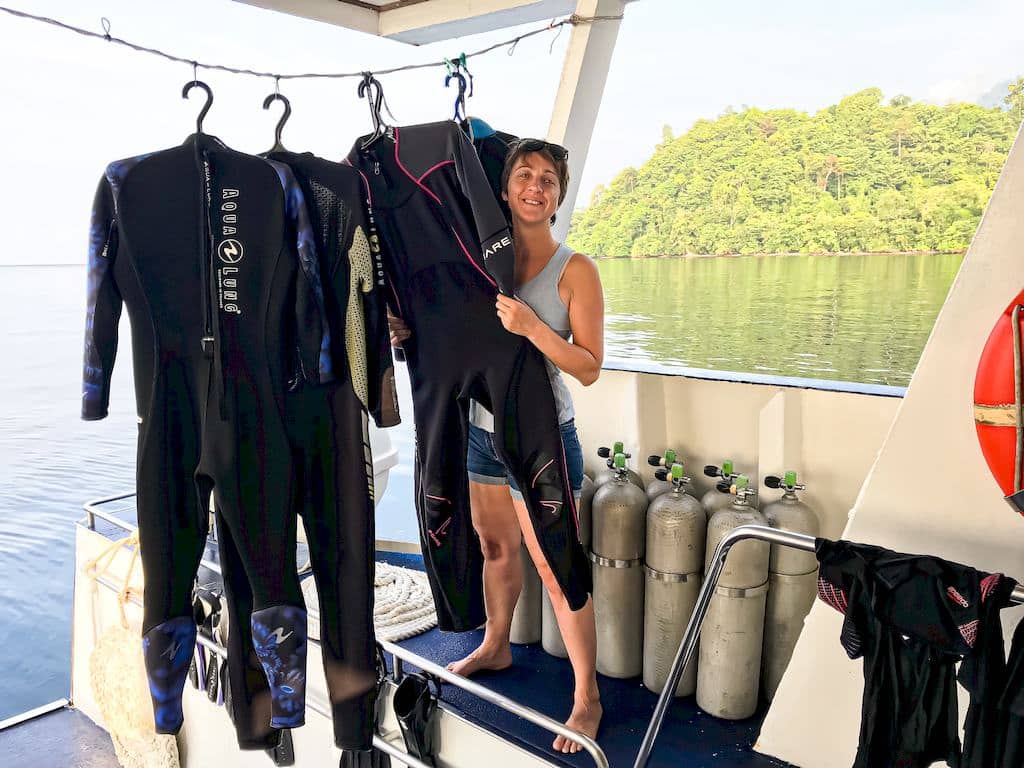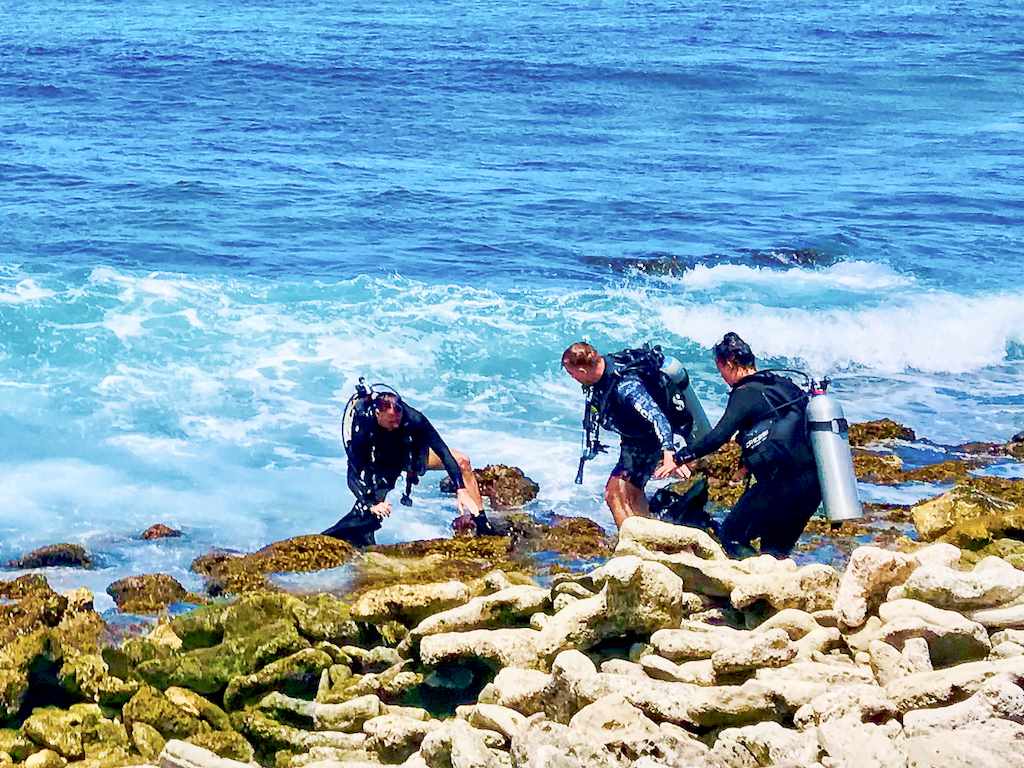Solo Diving : Between Freedom And Danger

Solo diving : everything you need to know
Solo diving is a regular hot topic. Seen by some as a danger, by others as a door to freedom, it may ultimately not be either.
The idea of solo diving is to dive without a buddy and not in a team.
Although it is often decried, solo diving is a common practice for many divers who choose to evolve without the support of a dive shop.
His name is Joe, he is passionate about underwater photography and does not want to impose on his buddy the infinitely long time he spends at maximum -10m to make his shots.
Her name is Betty and she has been diving without a dive shop for a long time, because clubs and other organizations are definitely not for her. Sometimes she needs to dive but she can’t find a buddy, so…
Peter, Jane, Bill, Youssef, Nath… many of us dive alone from time to time or very regularly. I say “we” because yes, I sometimes dive solo.
But not just like that, because it must be prepared!
Meet the instructors convinced by solo dive
It was a long time ago, I have an appointment with two instructors from one of the biggest diving club in Switzerland for a dive in a lake. During the briefing, the two friends, head of school and president of the club (yes, I was in good hands) explained me their vision of solo diving.
They tell me that within their club, they strongly encourage their instructors to dive regularly alone. This is to increase their self-control and learn to rely only on themselves. Because, they say, when we lead groups, we must not only manage ourselves if we have a problem, but also manage other divers. It is therefore better to be used to react in a totally autonomous way and to increase our confidence in our abilities.
At the time, I was a little impressed, but interested in this opinion which seemed to me to be so different but very interesting.
Well prepared
In solo diving, planning and preparation will be of the utmost importance. Because it is a reality: the solo diver can only count on himself!
Some essential elements of solo diving:
- Learn about the Laws of the Country Where You Want to dive
- Go very gradually
- Have a perfect redundancy of your material.
- Master your rig
- Know the dive spot (or learn about it) and be vigilant to parameters such as the weather.
- Carefully prepare the dive and its parameters of evolution: how long? How deep? What route? How much gas must be left when the dive is finished ?
- Maintain your equipment on a regular basis
- …
Of course, solo diving should only be carried out by trained divers who assume the risk of being left alone to manage a problematic situation. They will have completed diving training and sometimes even a solo diver specialization.
Whether you are attracted by this type of dive or you practice it regularly, remember to be prudent, because you will not be able to rely on anyone but you.
Rules for solo diving:
- Do not go beyond your experience; if this may seem obvious, this point should be a priority for a solo diver.
- Prefer no deco dives
- Limit depth
- Limit distances to be covered and prefer dives close to the exit point or close to the boat
- Refrain from diving with penetration of wrecks, caves…
- Prefer the rule of 1/3 over the rule of 1/2 (go back once you get to two-thirds of your air supply and exit with a third)
An interesting method: “What if”
Well known to TEK divers, the “What if” consists of imagining all possible scenarios of problems that can arise in the context of diving and solutions to deal with them. Naturally, this is done… before going diving.
Examples:
- What if I’m out of breath? Start the ascent immediately and calmly, exhaling deeply.
- What if I get caught in nets? Provide cutting methods in two different locations.
- What if my regulator is bubbling? Turn off the valve and begin the ascent
- ….
Once all the basic precautions are taken (rigorous planning, check equipment…), it is probably the self-confidence and the ability to keep calm that will be the best allies of the solo diver.
Good self-control and ease in the practice of apnea are certainly good ideas for people tempted by the solo diving experience. This will reduce your risk of being caught up in diving anxiety.
In conclusion
Nothing prevents us from practicing solo diving. Somewhere between the freedom to evolve alone and the danger of dives for which one can only count on oneself, this type of diving requires rigorous preparation, self-confidence, redundant and well-maintained equipment. As in many other activities, it is primarily a risk analysis that one accepts or does not accept.
Finally, we must insist that diving is and must remain a pleasure.
Therefore, there is no need to engage in practices to do as others do or to exceed one’s own limits. Also I can only advise you not to risk solo diving if you don’t feel it or if you don’t want to.
Do you like solo diving? Do you practice? What are the things you put in place to make it work optimally?
Tell me this in comment below.
And above all… remember to be happy 🤗
Hélène

